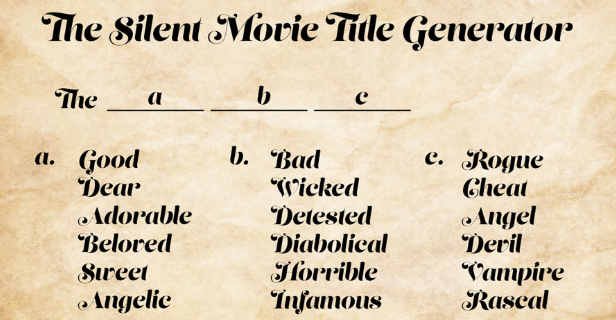he Nashville Kats were more than just an arena football team — they were a symbol of Nashville’s energy, grit, and unyielding sports culture. From their electrifying home games at the Bridgestone Arena to their unforgettable playoff appearances, the Kats brought fast-paced excitement and community pride to the heart of Music City.
As one of the most iconic franchises in the Arena Football League (AFL), the Nashville Kats had two distinct runs, both leaving a lasting legacy in Tennessee sports history. Whether you’re a longtime fan or new to arena football, this article takes you deep into the origin, success, challenges, and possible future of the beloved Nashville Kats.
The Origins of the Nashville Kats: A Franchise is Born
The Nashville Kats franchise was founded in 1997 as part of the Arena Football League’s expansion. Nashville, already known for its thriving music scene and growing population, was ripe for a new kind of sports entertainment — and arena football was the perfect fit. The team quickly gained popularity for its fast-paced games and tight-knit fan experience.
Led by enthusiastic ownership and a vision to embed arena football into the city’s cultural fabric, the Kats took to the turf with fire. Their home games at the Nashville Arena (now Bridgestone Arena) brought families, football enthusiasts, and curious newcomers together in a high-octane atmosphere. It wasn’t long before the team was pulling in solid attendance numbers and creating a buzz throughout the region.
On the field, the Kats were a competitive force right out of the gate. Coached by talented leaders and backed by passionate players, the team carved out a name for itself with quick passes, bold defense, and aggressive special teams. Their style of play mirrored Nashville’s spirit — fast, fearless, and full of flair.
The Golden Era: Playoffs, Players, and Packed Arenas
The Nashville Kats quickly transformed into one of the AFL’s elite teams during the late 1990s and early 2000s. From 1997 to 2001, the Kats made five consecutive playoff appearances, an impressive feat for a relatively new franchise. Their on-field success made them household names across Tennessee and respected competitors league-wide.
Star players like quarterback Andy Kelly — a University of Tennessee standout — became synonymous with the Kats’ success. Kelly’s leadership, combined with standout receivers and a relentless defense, turned the team into a consistent threat for the ArenaBowl championship. The Kats reached the ArenaBowl twice, in 2000 and 2001, solidifying their reputation as a powerhouse.
Off the field, the Kats were building a brand that resonated deeply with Nashville’s identity. With catchy chants, interactive halftime shows, and a devoted fanbase known as the “Kat Pack,” the experience of attending a game became a staple for locals. Their games felt like a mix between a concert and a football match — fitting for Music City.
Sudden Departure and a Brief Rebirth: The Franchise’s Ups and Downs
Despite the team’s growing success and strong fan support, the Nashville Kats faced a devastating blow in 2001 when the original franchise was sold and relocated to Georgia, becoming the Georgia Force. The move shocked fans and left a gaping hole in Nashville’s sports scene. For a city that had embraced its arena football team so thoroughly, the loss was both unexpected and disheartening.
However, the story didn’t end there. In 2005, the Nashville Kats were reborn as a new franchise under the ownership of country music superstar Tim McGraw and local investors. This second incarnation was met with high hopes and a sense of revival. Fans flocked back to the arena, eager to cheer on their team once more.
Though the revived Kats saw moderate success, they never quite regained their previous dominance. The team folded again in 2007 due to financial difficulties and operational challenges. Still, those few years brought back memories and gave fans a glimpse of what once was — and what might be again.
Nashville’s Arena Football Culture and Community Impact
The Nashville Kats weren’t just about the game — they helped cultivate a unique arena football culture in Tennessee. With their entertaining style and deep community involvement, the Kats established themselves as more than a team; they became a community pillar. Schools, youth football camps, and charitable initiatives were all part of their legacy.
Nashville residents remember more than just scores and stats. They recall family outings, halftime shows, player meet-and-greets, and the communal joy of rooting for the home team. For many, the Kats represented a more intimate and interactive sports experience than what traditional NFL games could offer.
The Kats also played a critical role in elevating Nashville’s reputation as a sports city. Their success helped pave the way for other major teams, including the Tennessee Titans and Nashville Predators, to build deeper roots. In many ways, the Kats helped prove that Music City could be Sports City too.
The Future of Arena Football in Nashville: Will the Kats Return?
Arena football has seen its ups and downs over the past two decades, with the AFL folding and various attempts at revivals through different leagues and structures. Still, the Nashville Kats continue to be a topic of interest and nostalgia among fans. With the resurgence of alternative football leagues like the XFL and the push for innovative sports entertainment, could the Kats make a return?
There’s strong evidence that Nashville would support an arena football team again. The city has grown rapidly, with an influx of new residents and a booming entertainment sector. The original Kats fanbase still holds fond memories, and a new generation is ready to embrace high-octane, affordable football.
While no official announcements have been made, rumors and fan-led campaigns occasionally pop up, calling for the return of the Kats. Whether through a new league or an independent revival, the spirit of the Nashville Kats lives on — and the city might just be waiting for its team to come back home.
Conclusion: Nashville Kats – A Story of Passion, Pride, and Potential
The Nashville Kats hold a special place in the history of arena football and the heart of Music City. From their thrilling playoff runs to their community engagement, the Kats offered something unforgettable. They were not just a team, but a source of joy, unity, and local pride.
While the team may no longer be on the field, their impact continues to echo through Nashville’s sports culture. Whether you’re reminiscing about game-day excitement or holding out hope for a comeback, the legacy of the Nashville Kats remains strong — and their story is far from over.
FAQs About the Nashville Kats
1. When were the Nashville Kats founded?
The Nashville Kats were originally founded in 1997 as part of the Arena Football League’s expansion.
2. What arena did the Nashville Kats play in?
The Kats played their home games at Nashville Arena, now known as Bridgestone Arena.
3. Who owned the Nashville Kats?
The original team had various owners, but the 2005 revival was notably co-owned by country music star Tim McGraw.
4. Did the Nashville Kats ever win an ArenaBowl?
No, they reached the ArenaBowl twice but did not win the championship.
5. What caused the Kats to leave Nashville in 2001?
The team was sold and relocated to Georgia, becoming the Georgia Force.
6. Were the Nashville Kats brought back after 2001?
Yes, the team was revived in 2005 but folded again in 2007.
7. What made Nashville Kats games special?
Fans loved the fast-paced gameplay, community involvement, and family-friendly environment.
8. Who was the most famous player on the Nashville Kats?
Quarterback Andy Kelly was one of the most well-known and successful players on the team.
9. Are there any plans to bring the Kats back?
There are no confirmed plans, but fan interest and discussions about revival continue.
10. What legacy did the Nashville Kats leave behind?
They left a lasting impression on Nashville’s sports scene and helped lay the foundation for the city’s vibrant sports culture.
Let me know if you’d like this turned into a formatted HTML blog post or if you’d like visuals or social media teasers added!
4o
ChatGPT can make mistakes. Check important info.



